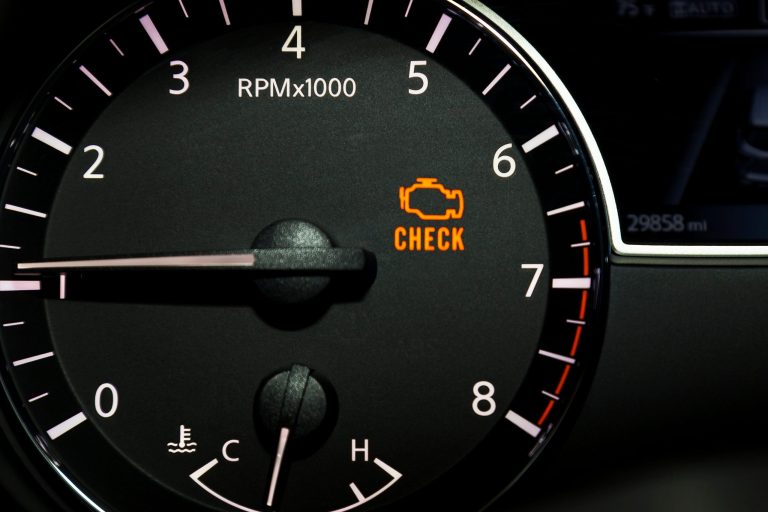Dodge
Dodge Lemon Law

Protecting Your Rights Against Defective Vehicles
Do you own a Dodge vehicle that’s constantly giving you problems? Don’t let ongoing issues spoil your rides! We’re here to guide you through your Dodge Lemon Law rights and provide advice on the steps to follow if you’re dealing with a defective car.
Understanding the Dodge Lemon Law
The Lemon Law for Dodge aims to safeguard consumers who buy or lease new vehicles that consistently show defects impacting their safety, value, or functionality. If your Dodge vehicle aligns with certain requirements, you could be eligible for a manufacturer-funded replacement, refund, or repair.
Common Dodge Issues
- Transmission failures
- Engine stalling or shutdown
- Electrical issues with infotainment systems
- Faulty TIPM (Totally Integrated Power Module)
- Premature brake wear
- Suspension problems, particularly with the tie rods
- Radiator issues causing overheating
- Faulty fuel pumps
- Ignition switch failures
- Power steering failures
- Defective airbags or recalls related to them
- Camshaft and lifter failures in certain V8 engines
- Exhaust manifold bolt breakage
- Oil consumption issues
- Cooling fan relay problems
- Air conditioning failures
- Alternator failures leading to dead batteries
- Problems with the UConnect system
- Transmission shifting irregularities
Dodge Models
Popular Dodge Models with Technical Service Bulletins (TSB) and Recalls.
- Dodge Ram (especially the 1500 series)
- Dodge Durango
- Dodge Grand Caravan
- Dodge Journey
- Dodge Challenger
- Dodge Charger
- Dodge Dart
- Dodge Avenger
- Dodge Caliber
- Dodge Nitro
Dodge Buyback Lemon Law Qualifications
To be eligible for a buyback under Dodge’s Lemon Law provisions, there are certain criteria that typically must be satisfied:
Persistent Issues: The vehicle should exhibit a significant problem or defect that recurs, even after multiple attempts at repair.
Impact on Safety, Value, or Functionality: The defect should considerably compromise the safety, value, or usability of the vehicle. This might involve critical components such as the engine, transmission, brakes, steering, among other essential systems.
Under Warranty: The issues should manifest within the vehicle’s warranty duration or a specific timeframe often dubbed the “eligibility period.”
Repair Efforts: The state’s Lemon Law will often dictate that the manufacturer or the dealership be granted several tries to mend the defect. If repairs are unsuccessful within this stipulated limit, the car might be deemed fit for a buyback. Essentially, an approved Dodge service center should get the chance to fix your Dodge first. If, after several dealership visits, the problem persists, your Dodge might be tagged as a ‘lemon’.
Service Downtime: Some states’ Lemon Laws stipulate that the vehicle must be non-operational for a certain number of days due to repair efforts. Meeting or exceeding this number can qualify the car for buyback. For instance, in California, there’s no set duration for which your Dodge must remain at the dealership for repairs. However, if it’s been there for an extended period, it hints at a substantial loss of utility, a key consideration in lemon law.
Resolving Disputes: If the defects aren’t addressed satisfactorily by the manufacturer or dealership, consumers may need to consider arbitration or even legal avenues to find a resolution.
Laws Vary by State: It’s important to remember that Lemon Laws differ across states. It’s vital to familiarize oneself with the specific rules and regulations in one’s locality. Some states might have rigorous criteria, while others might offer more flexibility.
Process to File for a Dodge Lemon Law Claim
- Your case is reviewed
- Documentation is gathered for your case
- A claim is opened with Dodge
- The claim is resolved with Dodge
- You receive payment for your Dodge Lemon
Why Choose Us for Your Dodge Lemon Law Case?
Our dedicated team of lemon law attorneys excels in managing cases related to malfunctioning vehicles, especially all Dodge models (Dodge Grand Caravan, Dodge Challenger, Dodge Journey, etc.). We boast a strong history of defending consumer rights and ensuring they receive the rightful compensation.
Contact Us Today for a Free Consultation on your Dodge
Ensure your Dodge experience isn’t soured by a lemon. Reach out to us now for a no-obligation discussion about your situation and to understand your choices under the Dodge Lemon Law. Our expert team stands ready to lead you through the necessary steps and defend your consumer rights.
Keep in mind, when dealing with a malfunctioning Dodge, you’re entitled to certain rights. Let us assist you in navigating the intricacies of the Dodge Lemon Law to guarantee you get the justice you seek.
Disclaimer: The content on this page offers general insights and should not be perceived as legal counsel. Please consult a certified attorney for guidance related to your distinct circumstances.
What is a Dodge Lemon Law?
The Dodge Lemon Law offers a structured legal pathway for consumers who find themselves with defective vehicles after purchasing or leasing. This law is specifically tailored for Dodge vehicles that consistently show significant defects, ensuring that owners receive the protection and redress they deserve when their vehicle does not match the anticipated quality, safety, and performance standards.
If a Dodge vehicle consistently displays defects or malfunctions within a set period, meeting certain outlined criteria, the individual who owns or leases the vehicle may qualify for a replacement, a refund, or a buy-back from the manufacturer.
It’s crucial to understand that Lemon Laws vary from one region to another. Their requirements for eligibility and the necessary procedures to file a claim might differ. Therefore, if you suspect your Dodge vehicle might be a “lemon”, seeking advice from a lawyer well-versed in Lemon Law cases will provide clarity on your rights and possible actions, as per the regulations of your specific jurisdiction.









